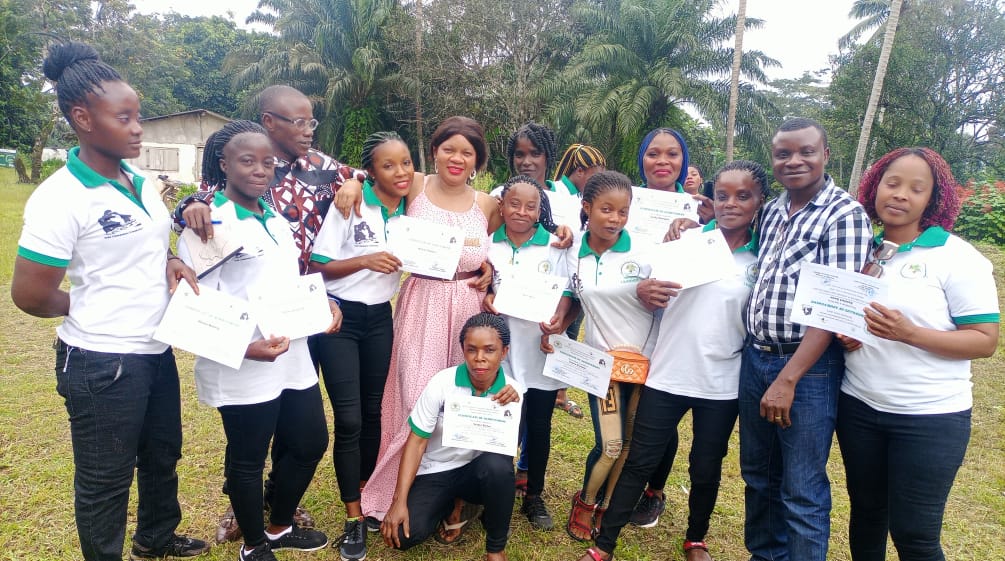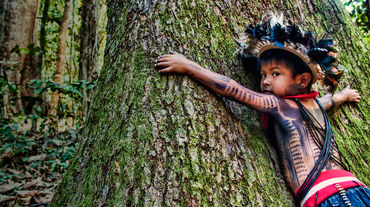Liberia: Teaching reading and numeracy – for conservation
 Ten women present their certificates after learning to read, write and do basic math in a WCF project (© WCF)
Ten women present their certificates after learning to read, write and do basic math in a WCF project (© WCF)
Mar 24, 2023
In Liberia, conservationists from the Wild Chimpanzee Foundation provided literacy and numeracy training to ten women. The goal is to set up an ecotourism project in the Sapo National Park and thus strengthen the protection of chimpanzees and other animals in the long term. Ecoguard patrols and discussions about the value of nature are also part of the program.
Efforts to protect Liberia’s forests and native chimpanzee habitats faced a challenging year in 2022. According to the Wild Chimpanzee Foundation (WCF) annual report, the rate of destruction caused by gold mining, poaching and deforestation has increased alarmingly. However, due to a lack of manpower and resources, the Forest Department rangers have been unable to combat illegal activities in the Grebo-Krahn National Park (GKNP). This made the regular patrols and educational work of the local Community Ecoguards all the more important – well over 1,000 people listened to their presentations and discussed conservation. Nearly half of them were women.
In GKNP and another protected area, the 12 Ecoguard teams, including 17 women, conducted 53 patrols over several days, collecting data on animals and human activities. In total, they discovered 6,008 pieces of evidence of illegal activity, including 5,017 pieces of evidence of poaching. They patrolled a total of 1,547 kilometers through the dense forest. Animals spotted included critically endangered chimpanzees, forest elephants, pygmy hippos and leopards.
Read more about the work of the Ecoguards here.
The highlight of the year for Dr. Annika Hillers, who directs WCF’s work in Liberia, was the literacy program in Sapo National Park. Ten women learned to read, write and calculate. “It was overwhelming how this was received, not only by the women themselves but also by other villagers. The response was huge,” she says. “We need to do more of this in the future.” The researcher is considering offering such courses to the Ecoguards, most of whom are illiterate. This could further increase their interest and understanding of conservation.
The women’s courses are linked to an ecotourism project in the Sapo National Park, which includes a lodge. It is still in its infancy, but is making great progress. The participants have also learned basic business skills. In addition, locals and the WCF are in the process of identifying sites in a 250 square kilometer section of the national park that are easily accessible and could be particularly attractive to visitors. Bettina Behrend, chairwoman of Rainforest Rescue, visited the project on a private trip.
Another highlight in the truest sense of the word are the four solar lanterns installed in Jalay Town. One of them shows the way to the lodge, the other three serve the villagers. In a place so far off the grid, this is worth a lot.












